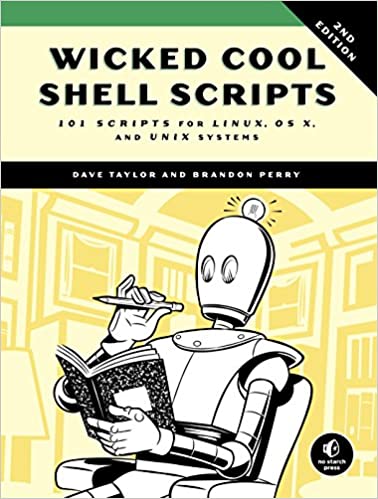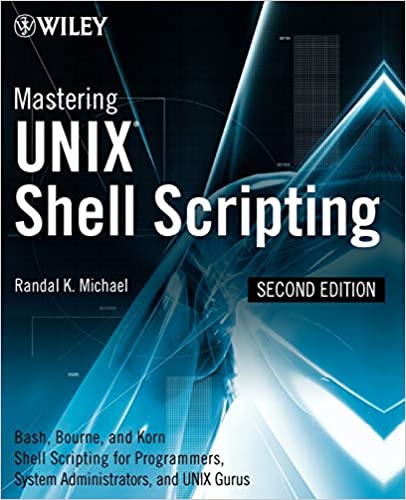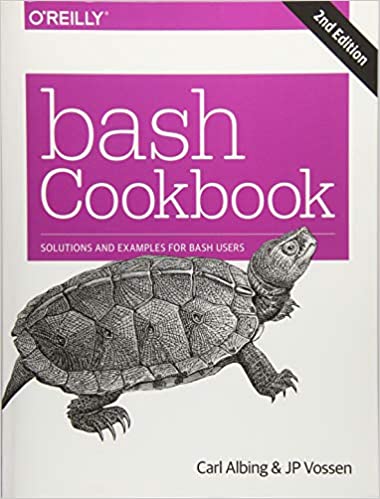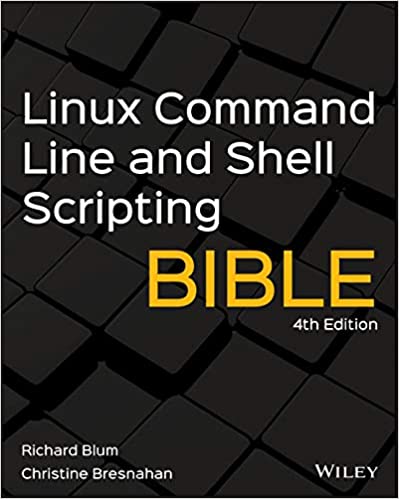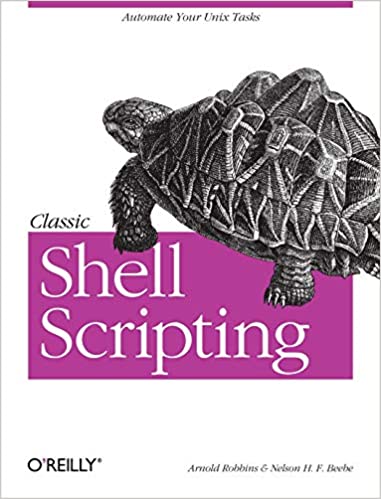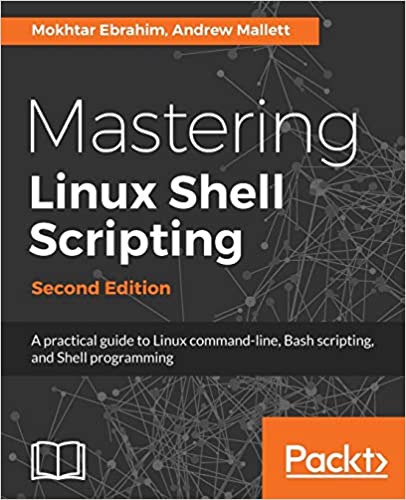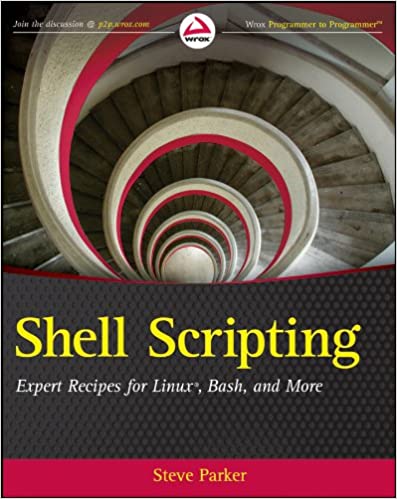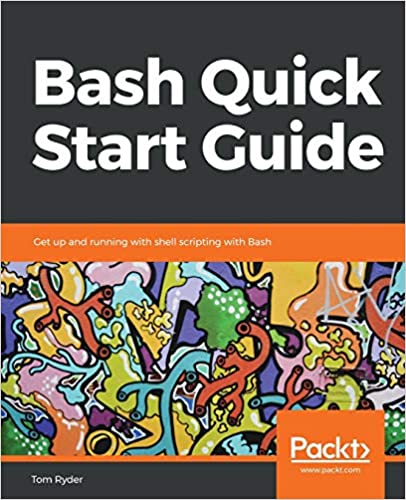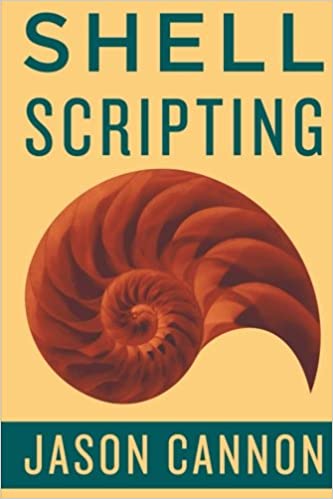Want to be a command line boss? You’ll need some shell scripting books.
Whether it’s for personal use or systems administration, we’ve hand-picked some of the best books to start you on your shell scripting journey.
Fun fact: Did you know that a Linux system can use more than one shell at the same time?
TLDR: Shell Scripting Books
🔥 Best Overall 🔥
Wicked Cool Shell Scripts, 2nd Edition
💥 Best for Shell Scripting Newbies 💥
Shell Scripting: How to Automate Command Line Tasks Using Bash Scripting and Shell Programming
💸 Best Value 💸
Linux Command Line and Shell Scripting Bible
Shell Scripting Books
1. Wicked Cool Shell Scripts, 2nd Edition
🚨 Ideal for: Intermediate Linux users
🔥 Shells used: bash
💥 Major topics: running commands, creating utilities, code libraries
Published by the always awesome No Starch Press, Wicked Cool Shell Scripts by Dave Taylor and Brandon Perry contains a collection of customizable shell scripts to solve common problems. You can also use them to personalize your computer environment.
You’ll start by taking a shell script crash course where you’ll learn about things like:
- running commands
- configuring your login script
- running shell scripts
And more.
Then you’ll move onto the meat of the book. Here’s where you’ll learn about things like code libraries, improving user commands and creating utilities.
You’ll also learn some system administration fundamentals like system maintenance and managing users. In addition, you’ll gain insight into navigating web administration tasks.
There are also scripts related to working with the cloud.
Finally, you’ll work on shell script games like Hangman and a States’ Capitals quiz.
Throughout Wicked Cool Shell Scripts, you’ll work on a total of 104 shell scripts. Some are serious, some are just plain fun.
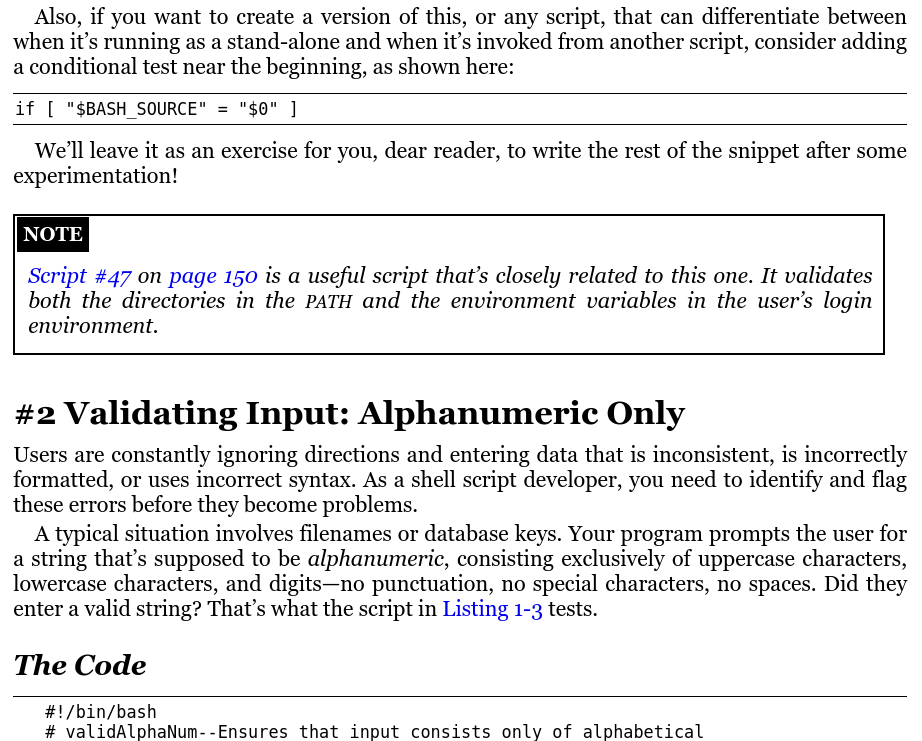
🔥 Geena’s Hot Take
No Starch Press consistently puts out high-quality books on all things tech, and we consistently recommend them. They tout themselves as “the finest in geek entertainment,” and we’re not here to argue.
Wicked Cool Shell Scripts is no different. It’s one of those shell scripting books that’s engaging, fun, and useful.
Sure you’ll learn plenty of useful scripts, but you’ll also work on scripts that are purely for entertainment value. It’s that balance of work and play that keeps us coming back to Wicked Cool Shell Scripts.
2. Mastering Unix Shell Scripting
🚨 Ideal for: programmers, systems administrators, UNIX gurus
🔥 Shells used: bash, Bourne, Korn
💥 Major topics: automated event notification, automating interactive programs, using rsync
UNIX Shell Scripting by Randal Michael covers Bash, Bourne, and Korn shell scripting.
You’ll start by learning the basics of shell scripting:
- processing files line-by-line
- automated event notification
- progress indicators using various methods
Then you’ll move onto scripts for programmers like working with record files, using rsync, and automating interactive programs.
After that, you’ll learn about scripts for system administrators in subjects like filesystem monitoring and creating a system-configuration snapshot.
Every chapter opens with a Unix challenge. Then you’ll learn how to take syntax and convert it into a shell scripting solution.
3. bash Cookbook: Solutions and Examples for bash Users
🚨 Ideal for: Unix/Linux users, systems administrators
🔥 Shells used: bash
💥 Major topics: intermediate shell tools, advanced scripting
Grab your oven mitt and barbecue apron. The bash Cookbook by Carl Albing and JP Vossen is for both new and experienced Linux and Unix users. It contains over 300 recipes for using Bash.
The recipes included cover problems like:
- shell variables and logic
- intermediate shell tools
- advanced scripting
- creating shell scripts
And much more.
Every recipe contains at least one scripting example. There are also explanations as to why each example is effective.
In addition to writing secure shell scripts, you’ll learn how to configure and customize Bash.
In all, you’ll learn about everything from creating repetitive tasks to customizing your environment.
bash Cookbook is ideal for Unix and Linux users as well as systems administrators.
4. Linux Command Line and Shell Scripting Bible
🚨 Ideal for: New & experienced Linux users
🔥 Shells used: bash
💥 Major topics: script building, script control, creating functions
Linux Command Line and Shell Scripting Bible by Richard Blum and Christine Bresnahan is jam-packed with practical tips and strategies for dominating shell scripting.
First you’ll learn all about the Linux command line. This includes basic Bash shell commands and understanding Linux environment variables.
Then you’ll come to understand what the shell is and how it works. You’ll also learn about basic script building, script control and presenting data.
After tackling the basics, you’ll move onto more advanced shell scripting concepts like:
- creating functions
- writing scripts for graphical desktops
- working with alternative shells
And beyond.
Finally, you’ll learn how to create and manage practical scripts.
Filled with real-world examples and usable scripts, Linux Command Line and Shell Scripting Bible is ideal for both new and experienced Linux users.
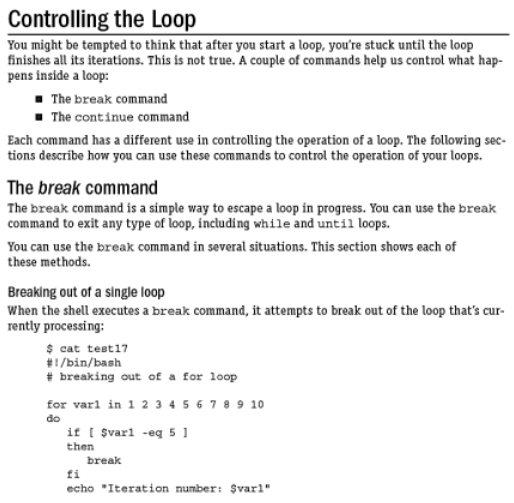
5. Classic Shell Scripting
🚨 Ideal for: newbies
🔥 Shells used: awk, bash
💥 Major topics: pipelines, decision making, production scripts
Classic Shell Scripting by Arnold Robbins and Nelson Beebe is one of those shell scripting books geared towards absolute beginners.
First you’ll learn about the history of Unix and principles of software tools. Then you’ll learn about what shell scripting is and get an overview of how to use it.
Then, you’ll get into the finer details of shell scripting such as:
- pipelines
- decision making
- input and output
- production scripts
And beyond.
There’s also an entire chapter dedicated to the awk command line.
Overall, you’ll learn how to:
- write useful shell scripts
- program and customize the shell
- get the best out of your Unix or Linux system
And more.
6. Mastering Linux Shell Scripting, 2nd Edition
🚨 Ideal for: Linux and systems administrators
🔥 Shells used: bash
💥 Major topics: Linux command line, file system administration, system administration
Mastering Linux Shell Scripting by Mokhtar Ebrahim and Andrew Mallett is intended to help you master Bash shell scripting. It covers everything from using the Linux command line up to creating Bash scripts.
Using a step-by-step learning process, you’ll learn the fundamentals of creating and running scripts in normal and debug modes. You’ll also learn how to write complex shell scripts as you dive into:
- file system administration
- system administration
- directories
And beyond.
You’ll also:
- debug Bash scripts
- build menu structures
- develop scripts that edit web configuration files
And use the command line to bypass the graphical user interface (GUI).
By the end of Mastering Linux Shell Scripting, you’ll be able to communicate with and automate your system.
This book is ideal for Linux administrators and system administrators looking to automate daily tasks.
7. Shell Scripting: Expert Recipes for Linux, Bash, and More
🚨 Ideal for: systems administrators
🔥 Shells used: bash and more
💥 Major topics: system tools, shell features, systems administration
Shell Scripting: Expert Recipes by Steve Parker is a collection of shell scripting recipes you can start using in real-world challenges. It features various recipes on system tools, shell features and systems administration.
First you’ll start with learning the history of Linux, Unix and GNU. Then you’ll learn how to choose one of these operating systems, a text editor, and how to set up your environment.
You’ll learn about different scripting fundamentals like:
- variables
- expansion
- conditional execution
- flow control using loops
And much more.
Then you’ll learn how to choose a specific shell:
- Bourne
- Korn
- C Shell
- Tenex C
- Zsh
- Bourne Again
- Debian Almquist
- Dotfiles
Then you’ll go over recipes for using system tools and system administration.
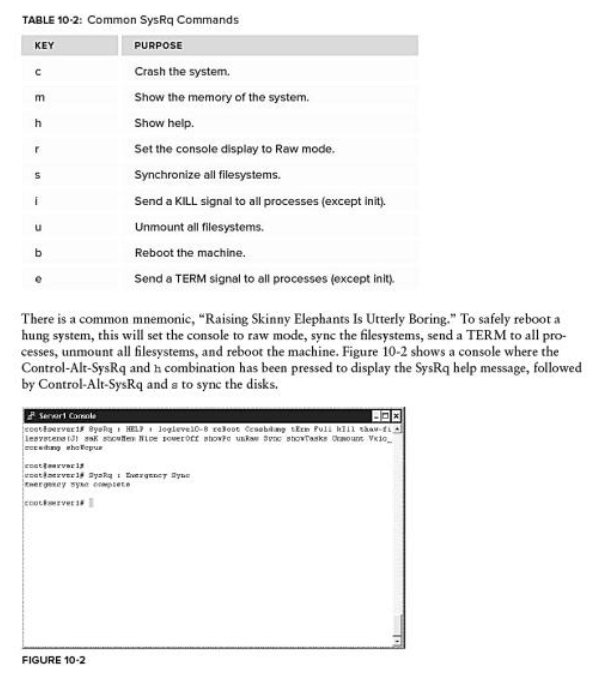
8. Bash Quick Start Guide
🚨 Ideal for: readers familiar with the command line and PHP and/or JavaScript
🔥 Shells used: bash
💥 Major topics: manage processes, automate tasks, filter input and output
Bash Quick Start Guide by Tom Ryder will teach you how to write shell scripts using Bash. These scripts will manage processes, automate tasks and filter input and output.
Rather than copying and pasting commands into the shell, you’ll learn techniques to automate and control processes on both servers and workstations. You’ll also learn how to configure your own shell environment to complement your workflow.
You’ll explore the interactive Bash command line to understand how it fits in relation to administration and programming. And once you understand the structure of Bash, you’ll work on pattern-matching and transforming text.
Most importantly, you’ll learn how to effectively and safely write shell scripts.
Bash Quick Start Guide is ideal for readers familiar with using the command line in Linux or Unix, and use a scripting language like PHP or JavaScript.
9. Shell Scripting: How to Automate Command Line Tasks Using Bash Scripting and Shell Programming
🚨 Ideal for: shell scripting newbies
🔥 Shells used: bash, Bourne, and more
💥 Major topics: fix scripting errors, turn repetitive tasks to reusable programs
Shell Scripting: How to Automate Command Line Tasks by Jason Cannon was written to help students turn repetitive tasks into reusable programs on Linux, Unix or Mac systems.
Using a step-by-step process, you’ll learn how to write shell scripts that solve real-world problems. In addition, you’ll learn how to identify and fix scripting errors.
You’ll also work on a shell script creation checklist. Then you’ll create a shell script template which will allow you to format your shell scripts.
Filled with exercises and solutions, you’ll apply what you’ve learned so you can immediately start writing scripts.
The scripting methods you’ll learn will apply to any shell scripting language including:
- Bash
- Bourne
- Korn
- tcsh
And beyond.
By the end of Shell Scripting: How to Automate Command Line Tasks, you should be able to easily create shell scripts.
I read this book in a weekend and went from stumped-on-Friday to successful-on-Monday. It filled in exactly the skills I needed, without any clutter.
– Sharon, Customer
10. Bash Pocket Reference
🚨 Ideal for: experienced Bash users
🔥 Shells used: bash
💥 Major topics: how to use arrays, Bash syntax, arithmetic expressions
Bash Pocket Reference by Arnold Robbins provides quick answers to questions that frequently come up while Bash scripting. This includes:
- characters you need to quote
- how to use arrays
- getting variable solutions to do what you want
And beyond.
In addition, you’ll get answers on Bash syntax, functions and variables, arithmetic expressions and more.
The Bash Pocket Reference is ideal for those already familiar with Bash but just need a quick guide to help them along.
Need more than a pocket reference on the bash shell? Check out the full-fledged version of this book, Learning the bash Shell.
Shell Scripting Books: Conclusion
Today we looked at the best shell scripting books this year.
Best Overall
Wicked Cool Shell Scripts, 2nd Edition
Best for Shell Scripting Newbies
Shell Scripting: How to Automate Command Line Tasks Using Bash Scripting and Shell Programming
Best Value
Linux Command Line and Shell Scripting Bible
So whether you’re looking for best overall, value, or newbie-friendliness, we think there are shell scripting books for everyone.
Up Next:
- 16 Best Linux Books for This Year [Linux for Beginners & Beyond]
- 8 ABSOLUTE BEST Linux Training Courses and Certifications (plus PROMO CODES)
- The Linux Foundation Training Review (Linux Foundation courses, training & bootcamps)
- Is Coursera Worth It? (Coursera Review)
- Why PORTFOLIO SURGERY needs to be in every software developer’s pocket this year
What are the best shell scripting books?
We chose the best shell scripting books based on 3 criteria. For best overall, we think Wicked Cool Shell Scripts is the way to go. For newbies, we think Shell Scripting: How to Automate Command Line Tasks is the clear winner. And for value, we think Linux Command Line and Shell Scripting Bible takes the cake.
Is the book Wicked Cool Shell Scripts worth it?
Yes, we think Wicked Cool Shell Scripts is worth it. Wicked Cool Shell Scripts by Dave Taylor and Brandon Perry contains a collection of customizable shell scripts to solve common problems. You can also use them to personalize your computer environment. You’ll start by taking a shell script crash course where you’ll learn about things like running commands, configuring your login script and running shell scripts. Then you’ll move onto the meat of the book. Here’s where you’ll learn about things like code libraries, improving user commands and creating utilities. You’ll also learn some system administration fundamentals like system maintenance and managing users. In addition, you’ll gain insight into navigating web administration tasks. There are even scripts related to working with the cloud. Finally, you’ll work on shell script games like Hangman and a States’ Capitals quiz. Throughout Wicked Cool Shell Scripts, you’ll work on a total of 104 shell scripts. Some are serious, some are just plain fun.
Is the Bash Pocket Reference worth it?
Yes, we think the Bash Pocket Reference is worth it. Bash Pocket Reference by Arnold Robbins provides quick answers to questions that frequently come up while Bash scripting. This includes characters you need to quote and how to use arrays. In addition to these, you’ll also get answers on Bash syntax, functions and variables, arithmetic expressions and more. The Bash Pocket Reference is ideal for those already familiar with Bash but just need a quick guide to aide and guide them along.
![10 shell scripting books you need this year [learn shell scripting asap]](https://realtoughcandy.com/wp-content/uploads/2021/04/cover-shell-scripting-books-1024x576.jpg)
